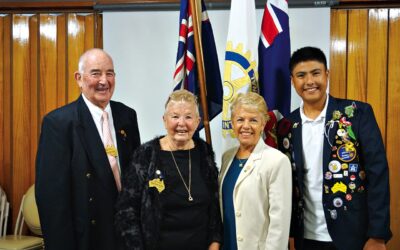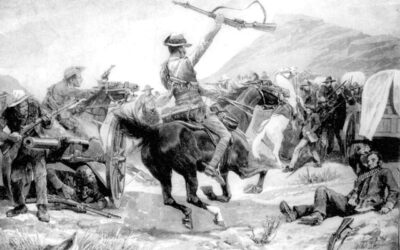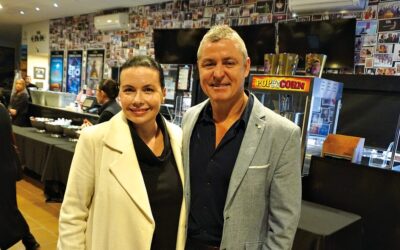Looking back through Gunnedah’s early history as European settlement expanded across the Namoi Valley, little mention is given to the role of pioneering women, who were often the backbone of small communities.
While men played a huge role in farming and grazing, opening associated businesses and other development, women were always there quietly in the background, raising large families, running farms, keeping households together while their men were off working, sometimes hundreds of miles away.
They were often responsible for the education of their children, not just reading and writing but also the finer points of life. It bemuses me that women never appeared to have a Christian name – they were always known by their husband’s initials, with the surname added.
As we approach International Women’s Day on March 8, it is time to reflect on the incredible contribution of women in our own community, women who were often trail blazers for others.
While for many years the official recognition of women’s work in the Gunnedah community went to early organisations such as the Australian Red Cross Society, the Benevolent Society of NSW, and later the Country Women’s Association, for years women had been working hard at fund-raising and practical work for local churches, schools, the hospital, the annual show and sporting organisations.
International Women’s Year (IWY) was the name given to 1975 by the United Nations. Since that year March 8 has been celebrated as International Women’s Day, and the United Nations Decade for Women, from 1976 to 1985, was also established.
One of the many fine sculptures by Carl Merten on Pensioners Hill, is a wonderfully crafted image of a pioneer woman, paying tribute to their major role in the development of community life.
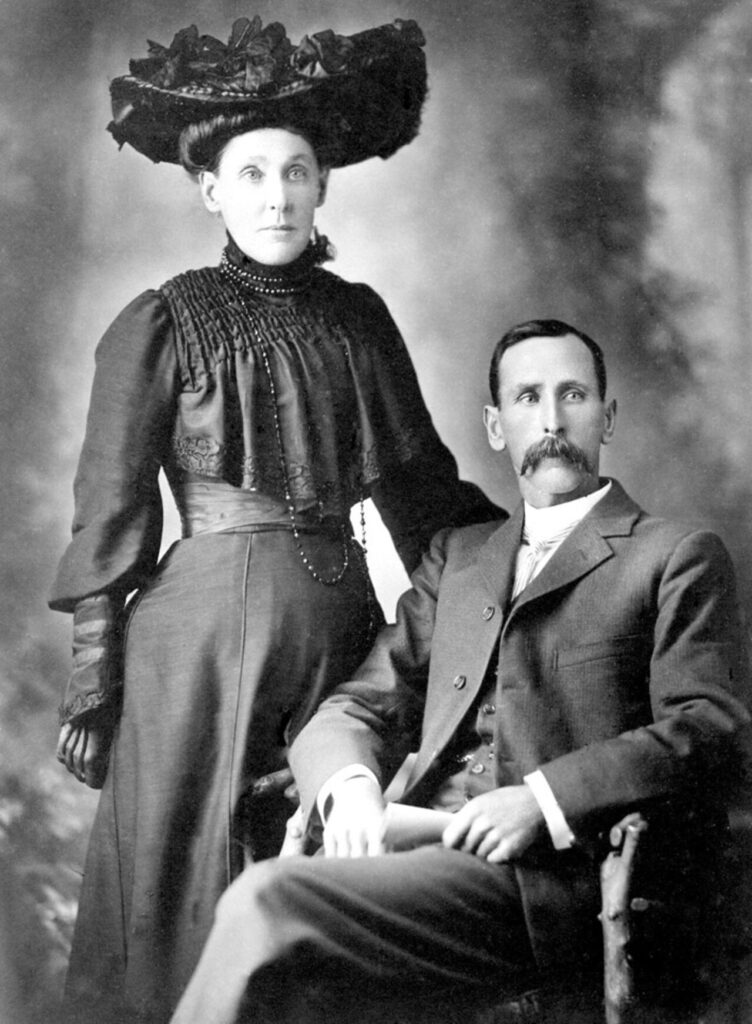
Lydia and George McDonagh.
Lydia McDonagh: The Australian branch of the Red Cross began on August 13, 1914, with the Gunnedah branch opening a year later in December 1915.
Alice Moulton called the establishing public meeting, with Lydia McDonagh as the first Gunnedah Red Cross president. Nine people founded the branch, which quickly grew in numbers and consequently strength.
Lydia McDonagh, wife of George McDonagh, was an active figure in community life. She was a great supporter of her husband’s business and community activities and took a forward role in the life of the town during the World War I years, despite the loss of her son Harley at Pozieres in France in 1916.
In Carroll she was organist and Sunday School teacher at St Matthew’s Church of England and continued as an active member of Christ Church in Gunnedah and in the Ladies’ Benevolent Society, of which she was president. She was the founding president of Gunnedah Red Cross (1915), the group largely made up of the wives and mothers of soldiers in battle. Branch members sent bales of warm clothing, food, coats and gloves to the front. The branch also ran local refreshment rooms and sewing clubs and sponsored activities in local schools. A Junior Red Cross branch was also formed. Lydia McDonagh died at her home in Barber Street, Gunnedah, on January 11, 1933. She was 70 years of age.
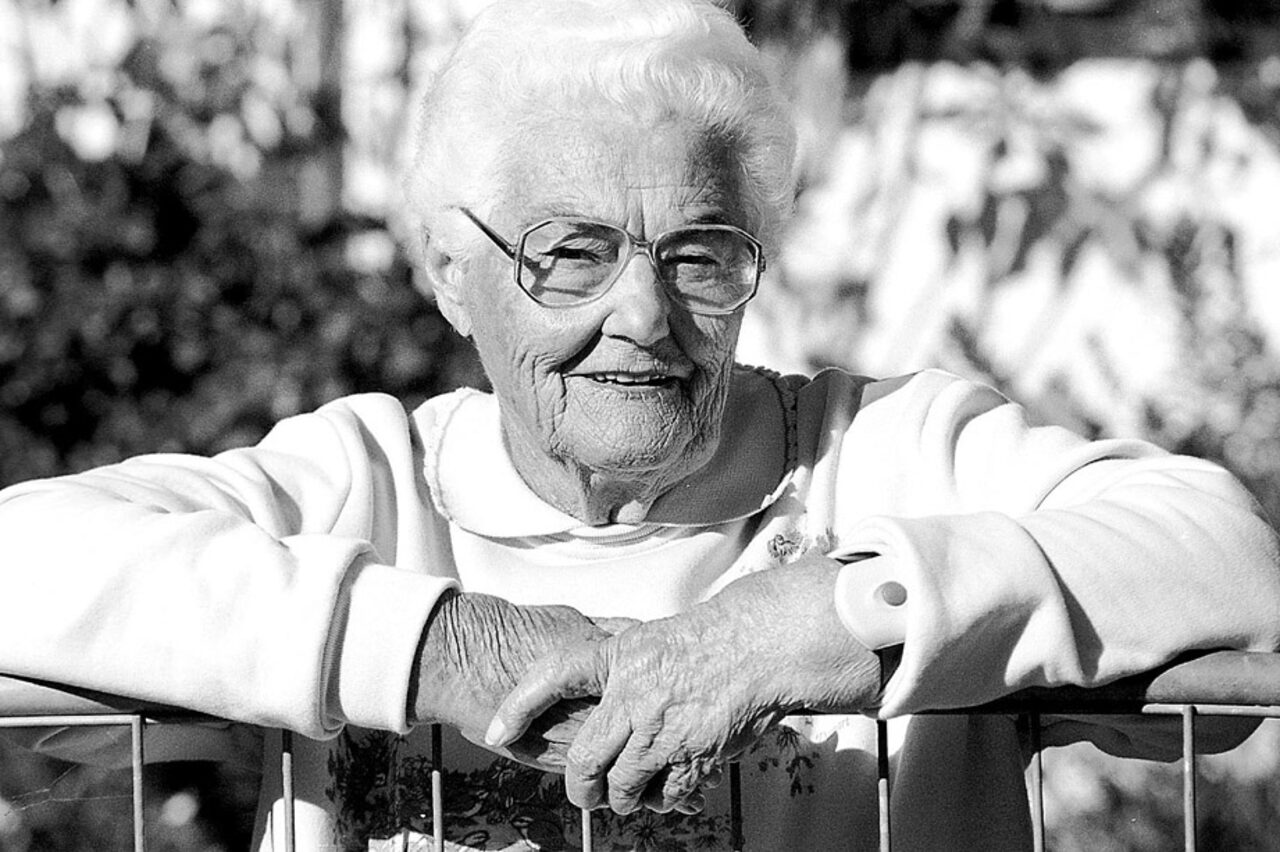
Clare Walker made history as the first woman elected to the Gunnedah Municipal Council.
Clare Walker: Clare Walker made history as the first woman elected to the Gunnedah Municipal Council. After years as a farmer’s wife raising a family, Clare was elected in 1974 and served nine years on council, as a strong advocate for women, children and families. Over a period of almost 50 years, she was a prominent and much-loved community worker.
Clare was always interested in elocution, poetry and reading and obtained degrees from the London College of Speech. Over the years, as a speech therapist and educator, she taught the art of speech to hundreds of children, during the “golden years” of the Gunnedah Eisteddfod.
She was employed at radio station 2MO for many years and was one of the early staff who helped launch Ag-Quip, which became the largest agricultural exhibition in the
Southern Hemisphere. Her other interests included the swimming club, eisteddfod society, Gunnedah Netball Association, Gunnedah Picnic Races, Chamber of Commerce, Advisory Committee of Gunnedah Technical College, where she taught secretarial skills for many years, and Salvation Army Red Shield Appeal. She was also District Commissioner of Guides, a key figure in the establishment of the Community Health Centre in Marquis Street and the instigator of the Occasional Child Care Centre.
Clare was awarded an Australia Day Medal in 1984 and in 2000 she received the Order of Australia Medal (OAM) for her spread of involvement in community activity over a period of more than 50 years. The citation read: “For service … through health, childcare, social support and sporting organisations”.
In 2005 she was named one of Gunnedah’s Treasures during Seniors Week and in 2012 was presented with a plaque of appreciation by the Gunnedah Eisteddfod Society. She died on December 19, 2012, aged 96, having lived long enough to see five generations of her family. Her husband Eric died in 1994, aged 78.
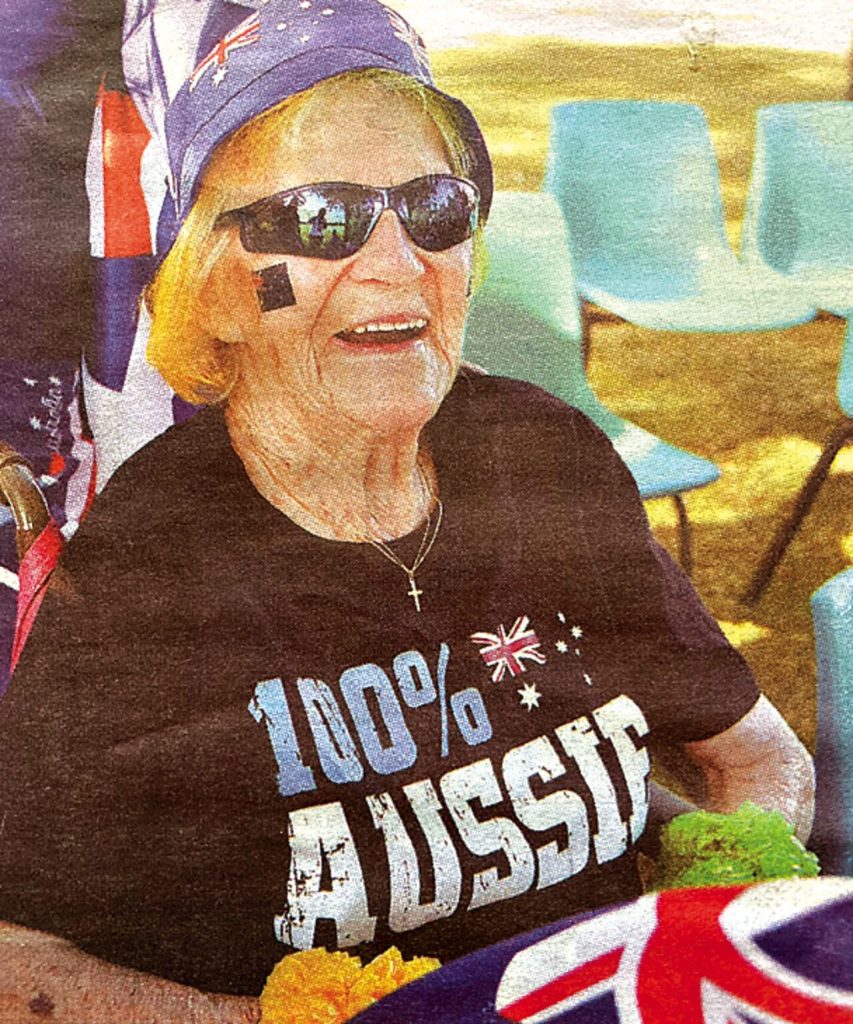
Dutch immigrant Mikie Maas was a big supporter of Gunnedah and the Australian way of life. Photo: Namoi Valley Independent
Mikie Maas: Following in Clare’s footsteps was the late Mientje Anthonius Adrianna Septimus Maas, affectionately known as Mikie. Once described as “Gunnedah’s greatest patriot” Dutch-born Mikie Maas was a passionate advocate for her adopted country. Singlehandedly, she taught a community – Gunnedah – how to celebrate its nationhood. In a 40-year association with community life, she was a breath of fresh air to local administration – unorthodox and unusual in some respects but a person of enormous energy and zeal.
The Maas family moved to the Gunnedah district in 1969 where Mikie soon became immersed in local activity, winning a seat on Gunnedah Municipal Council in 1977.
Fired by patriotic zeal for her adopted country, she formed a group known as TAP (Tourist Activities Promotion) and set about raising money for a memorial to Dorothea Mackellar, the poet who wrote the famous poem, My Country. Her group finally achieved its goal of raising $30,000 for a sculpture of a young woman sitting side-saddle on a horse in ANZAC Park, gazing towards the Mackellar property Kurrumbede. Not content with that, she initiated the Dorothea Mackellar Memorial Poetry Contest for Schools, which, over the years, became the largest competition of its kind in the world.
Mikie served 15 years on council, including two terms as Deputy Mayor, but did not seek re-election in 1991.
She received the Order of Australia Medal in 1987 and the Centenary of Federation award in 2001, the same year that she was inducted into the Australian Pioneer Women’s Hall of Fame in Alice Springs. The Hall of Fame is dedicated to preserving the place of women in history and their special contribution to Australia’s heritage.
Mikie died in October 2012, aged 89.
Part two to follow.
To order photos from this page click here

